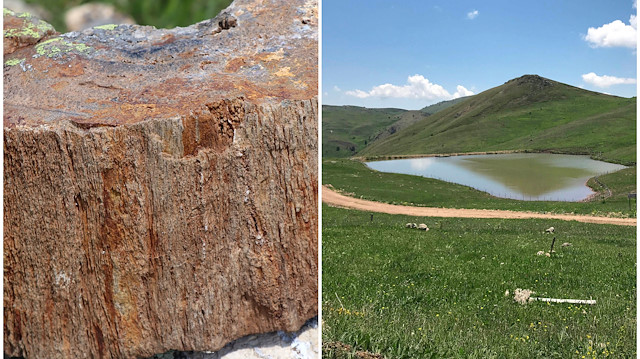
The discovery of a 160-million-year-old fossilized tree and two now-extinct species in Turkey's northern province of Gümüşhane thrills scientists
Turkish researchers have stumbled upon a 160-million-year-old fossilized tree and two previously undiscovered species in the Black Sea region of Gümüşhane, shedding light on the country’s geological history.
In June 2020, two Turkish geologists by the names of Prof. Raif Kandemir and Assoc. Prof. Coşkun Erüz initiated a field study in the Edire plateau, an area home to a significant variety of endemic species and the “Bottomless Lake” in northeastern Turkey.

During the trip, they discovered the fossils of a large number of trees dating back 160 million years, as well as two now-extinct needle-leaf trees from the Jurassic period.

In an aim to identify the age of the fossils, they were delivered to Prof. Dr. Ünal Akkemik, the head of the Department of Forest Engineering at Istanbul University’s Forestry Faculty.

Findings also indicate that the region hosted the Araucaria genus, which are indigenous to the Southern Hemisphere.
The Edire Plateau is 18 kilometers from the city center and located at 2,300 meters above sea level. The region is famous for its many lakes and ponds


